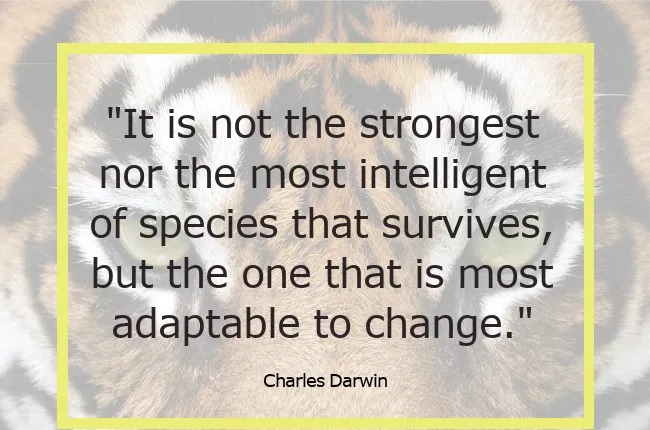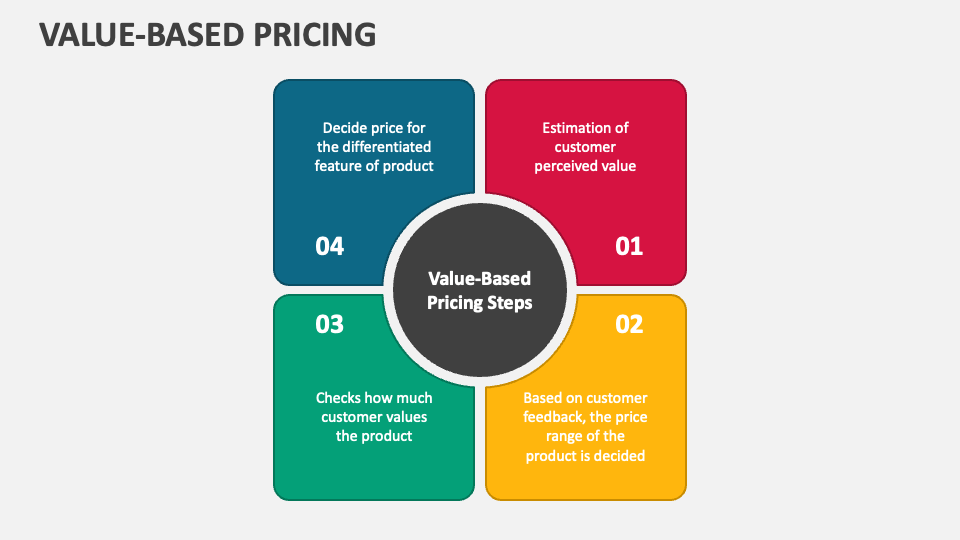The ability to navigate through constant change
In the dynamic landscape of the business world, survival is no longer a measure of strength alone; it is about adaptability, resilience, and the ability to navigate through a constantly changing environment. Charles Darwin’s theory of evolution, “survival of the fittest,” holds not only in the natural world but also in the corporate realm. Companies that thrive can best adapt to the evolving circumstances, demonstrating a Darwinian approach to business strategy. In this blog post, we explore why companies must think like Darwin, emphasizing the importance of adaptability and how this idea seamlessly translates into a value-oriented strategy.
The Darwinian Paradigm in Business: Adapt or Perish
Darwin’s theory, often simplified as “survival of the fittest,” extends beyond physical strength. It underscores the significance of adaptability in the face of changing environments. In the business context, this means that success is no longer about who has the most considerable resources or market share but about the capacity to evolve, innovate, and stay relevant in a rapidly transforming landscape.

Adaptability in the Digital Age:
The advent of the digital age and the introduction of A.I. artificial intelligence has accelerated the pace of change. Technologies evolve, consumer behaviors shift, and market dynamics transform at an unprecedented rate. Companies that resist adaptation risk becoming obsolete overshadowed by more agile competitors embracing change.
Resilience in Uncertain Times:
The global business landscape is uncertain, from economic fluctuations to unforeseen events like pandemics. Darwinian thinking in business involves building resilience—ensuring that a company can weather storms, pivot when necessary, and emerge stronger from challenges.
Innovation as a Survival Tool:
Innovation is the lifeblood of adaptability. Companies that foster a culture of continuous innovation are better positioned to meet evolving customer needs and stay ahead of the competition. Darwinian businesses prioritize research and development, pushing the boundaries of what’s possible.
Translating Darwinian Thinking into Value-Oriented Strategy
Survival in business is not just about staying afloat; it’s about creating and delivering value that resonates with customers, employees, and stakeholders. A Darwinian approach seamlessly integrates with a value-oriented strategy, emphasizing the following fundamental principles:
Customer-Centric Adaptation:
Darwinian businesses prioritize understanding their customers’ evolving needs and preferences. Through data analytics, feedback loops, and market research, they continuously adapt their products and services to deliver exceptional value.
Agile Decision-Making:
Agility is a hallmark of Darwinian companies. They embrace agile methodologies in decision-making, allowing for quick adjustments in response to market changes. This agility extends to product development, marketing strategies, and overall business operations.
Cultural Evolution:
The organizational culture plays a pivotal role in Darwinian thinking. Companies that encourage a culture of learning, experimentation, and adaptation foster an environment where employees are empowered to contribute ideas and drive positive change.
Ecosystem Collaboration:
Darwinian businesses recognize the importance of collaboration in a connected world. They build strategic partnerships, engage in ecosystem collaborations, and leverage external expertise to enhance their capabilities and stay at the forefront of industry trends.


The Value-Oriented Darwinian Strategy in Action
Adaptive Pricing Models:
Darwinian businesses recognize that pricing models must adapt to market conditions. Value-oriented pricing strategies, such as dynamic pricing or subscription models, ensure that customers perceive the value they receive as worth the cost.
Continuous Improvement:
A value-oriented Darwinian strategy involves a commitment to continuous improvement. Companies regularly assess their processes, products, and services, identifying areas for enhancement and innovation to deliver greater value.
Strategic Value Partnerships:
To stay adaptable, Darwinian businesses form strategic partnerships that enhance their value proposition. Collaborating with other companies or industry leaders allows them to tap into additional expertise and resources, driving mutual success.
Transparent Communication:
Transparent communication is a fundamental aspect of value-oriented Darwinian businesses. Clear communication builds trust with stakeholders, conveying that the company is adaptable, open to feedback, and committed to delivering sustained value.
Conclusion: Thriving in the Darwinian Business Ecosystem
In the ever-evolving business ecosystem, thinking like Darwin is not a luxury but a necessity. Companies that embrace a Darwinian approach, valuing adaptability and innovation, naturally gravitate towards a strategy centered on delivering meaningful value.
The ability to adapt, innovate, and create value is the true hallmark of a business that survives and thrives in the face of constant change. As you navigate the dynamic business landscape, consider how your company can evolve, innovate, and create value that ensures long-term success.
